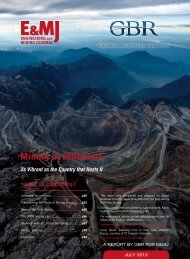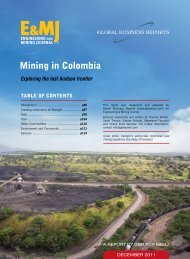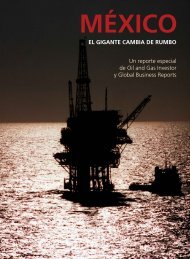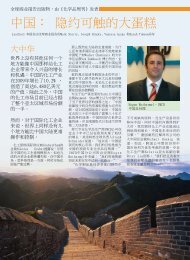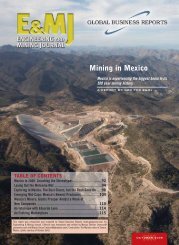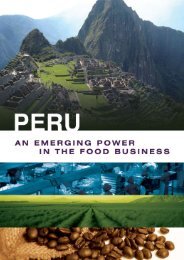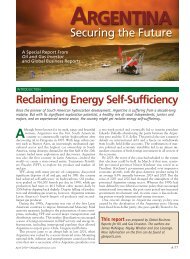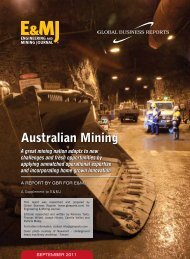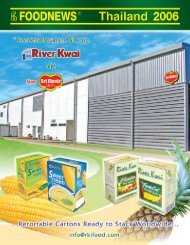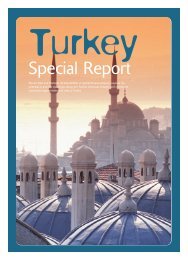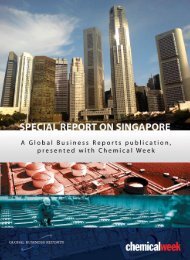Sri Lanka Textiles 2003 - Global Business Reports
Sri Lanka Textiles 2003 - Global Business Reports
Sri Lanka Textiles 2003 - Global Business Reports
Create successful ePaper yourself
Turn your PDF publications into a flip-book with our unique Google optimized e-Paper software.
specialreportsrilanka<br />
Social Compliance<br />
Gives <strong>Sri</strong> <strong>Lanka</strong> an Edge<br />
In a world of borderless trade, the<br />
theory of comparative advantage<br />
states that when country A is able<br />
to produce and export a specific<br />
product for less than country B, then<br />
country A has a comparative<br />
advantage in that product.<br />
Nowhere has this theory been more<br />
ruthlessly applied than in the world<br />
of textiles, where buyers from<br />
around the world continuously seek<br />
to source increasingly cheaper<br />
textiles from countries that have a<br />
comparative advantage in producing<br />
textiles.<br />
Unfortunately, this theory contains<br />
a major flaw. It does not allow for<br />
equality in standards – not the<br />
standards of the final product, but of<br />
the environment and social welfare<br />
in the place where the garments are<br />
produced.<br />
All over the world, garment<br />
manufacturers are struggling to<br />
provide the best quality products at<br />
the lowest prices within the shortest<br />
space of time. But is this enough to<br />
get orders? The whole garmentmanufacturing<br />
sector in <strong>Sri</strong> <strong>Lanka</strong> is<br />
convinced that, to be successful, it<br />
has to go further.<br />
And the area where <strong>Sri</strong> <strong>Lanka</strong> is<br />
proudly head-and-shoulders above its<br />
competitors within the region is its<br />
compliance with international<br />
standards in terms of labour laws,<br />
environment protection and respect<br />
for human rights.<br />
In recent years, mass retailers and<br />
the biggest brands have been under<br />
huge pressure from consumers<br />
groups and the ever-vocal lobbies in<br />
the Western countries, forcing them<br />
to source from countries and<br />
companies that comply with international<br />
labour standards and human<br />
‘<strong>Sri</strong> <strong>Lanka</strong> has a tremendous<br />
advantage, especially in<br />
comparison with its neighbours’<br />
rights. Damning reports on such<br />
high-profile retailers as Nike and<br />
Reebok have forced both companies<br />
to search for more ‘suitable’<br />
suppliers, whilst also spending<br />
millions on building their image as<br />
caring employers.<br />
And in terms of standards<br />
compliance, <strong>Sri</strong> <strong>Lanka</strong> has a<br />
tremendous advantage, especially in<br />
comparison with its neighbours.<br />
Firstly, owners throughout the<br />
country proudly point out that there<br />
is no child labour, nor sweatshops,<br />
nor forced labour. Wage rates,<br />
overtime and workers’ holidays are<br />
strictly covered by law and, as<br />
Channa Palansuriya, CEO of Orit,<br />
confirms: “Big buyers actually refuse<br />
to work with producers that are not<br />
april-may <strong>2003</strong><br />
33



